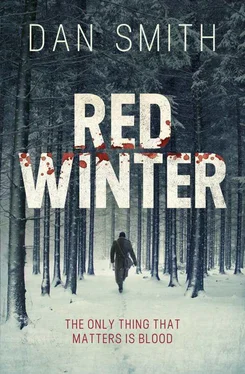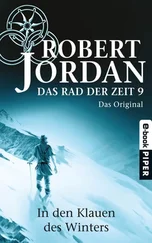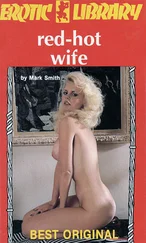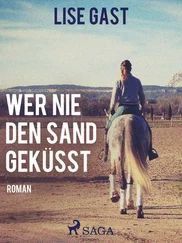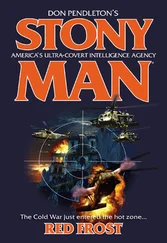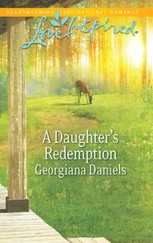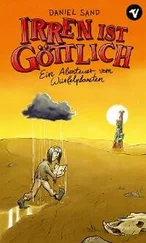‘If you were going to shoot me, you’d have done it in Belev,’ I said. ‘Get on your horse.’
Lyudmila stayed where she was, crouched behind the well with her rifle pointed at me, but Tanya lowered hers. ‘You didn’t say you had a horse.’
‘You didn’t ask.’
‘And who’s the boy?’
‘I’m not a boy.’ Anna stepped to my side, puffing her chest and putting back her shoulders, as she had done just a few minutes ago.
‘There’ll be time for this later,’ I called. ‘But not now.’
Tanya sighed and nodded to Lyudmila. ‘We’d better go. If he’s right—’
In the church tower, the bell began to ring. Slow and baleful, it was more like a funeral toll than a warning.
Tanya looked in the direction of the church, then went to her horse and unhitched it, climbing up into the saddle.
‘Come on,’ I said to Anna. I pocketed the revolver and put my hands under her arms.
‘I can do it myself.’ She pulled away.
‘All right.’ I stepped back. ‘After you.’
Lyudmila was the last to move, but she finally lowered the rifle and went to her horse just as Anna put her foot in the stirrup. It was a stretch for her to reach that high and she only just managed it, but once there, she hopped a few times as if to build momentum and then, with a grunt, heaved herself into the saddle.
‘Well done,’ I said, as I climbed up behind her, and I felt a certain pride that she had managed it. She was resilient. She would survive.
Tanya looked back at me. ‘What about these people?’
‘There’s nothing we can do for them.’
‘They’ve already endured so much,’ Lyudmila said.
‘And we haven’t?’ I asked.
Lyudmila held my stare, then looked to Tanya for her orders. Tanya responded by putting her heels to her horse. ‘Which way?’ she asked.
‘Follow me.’
The bell continued to toll its low, mournful beat as we passed more charred izbas and homes with broken doors.
‘What did they tell you?’ I asked Tanya, as we rode through the deserted street. ‘Those people back there.’
She ignored my question. ‘Who’s the boy?’
‘I’m a girl ,’ Anna said. I couldn’t see her face, but it sounded as if she had spoken through gritted teeth. Perhaps her grief was turning to anger, and while that could be useful in some circumstances, I didn’t want her to become awkward.
‘A girl?’ Tanya came alongside us to see Anna. ‘So you are. And is the dog yours?’
‘He’s called Tuzik,’ Anna said. ‘He’s ours .’
Tanya looked at me, raising her eyebrows, and I felt my pride in Anna grow. There was something reassuring about the way she had said ‘ours’. We were together now, a partnership.
‘So what did they tell you?’ I asked again.
‘Not much.’
‘Then it won’t take long for you to tell me .’
‘Let’s get out of here first,’ Tanya said. ‘Then we’ll talk.’
‘Keeping it to yourself?’ I said. ‘Making yourself important to me?’
‘Something like that.’
‘What if something happens to you? I need to know what you know.’
‘You’ll have to make sure nothing does happen to me.’
Tanya was smart. She knew how to keep herself alive.
‘And what can I do to make myself important to you?’ I asked.
‘Nothing.’
Coming out of the town, we pressed the horses harder, pushing them out of the bowl of the steppe and up towards a cluster of trees on the horizon just west of the town. As we rode, I glanced across to see the column that had halted a kilometre or so north of Dolinsk.
‘You believe me now?’ I asked.
A little further away from the town, I brought Kashtan to a stop and lifted the binoculars to scan the line of soldiers. Tanya and Lyudmila rode a few steps ahead before they realised I had stopped.
Tanya came back to me, breathing hard, saying, ‘Red Army.’ She didn’t need binoculars to know who it was, because we were above them now, with the sinking winter sun behind us, and they were closer than they had been when I first saw them. The red flags flying over the heads of the vanguard were plain enough.
‘Red Army,’ I agreed.
‘How many?’
‘Four hundred,’ I guessed. ‘Maybe more.’ I lifted the binoculars again. ‘Maybe a hundred on horseback and the rest on foot. I count… five or six tachankas .’ I passed the binoculars to Tanya. ‘They have Putilov guns too.’
The tachanka was a powerful weapon in anyone’s hands. A horse-drawn mounted machine gun that could be quickly manoeuvred and deployed without much delay. Four or five of them could be used to tear through a small force in minutes; something I had experienced first hand in Grivino when we’d been fighting the peasants of the Blue Army. Coupled with the Putilov field guns, they were devastating. The peasants had good numbers, but they didn’t stand much chance against resources like this.
Tanya shook her head and pulled her own binoculars from the saddlebag behind her. She watched for a while before passing them to Lyudmila.
‘Where do you think they’re going?’ Lyudmila asked.
‘Where do you think?’ I replied.
She lowered the binoculars and stared at me. ‘To kill peasants. Farmers. Men and women with pitchforks, maybe a few rifles, against machine guns.’
‘Or perhaps to stop the uprising,’ I said. ‘Not to fight peasants but to crush counter-revolutionaries . Enemies of the people. It depends which side of the fence you live on.’
‘You don’t believe that,’ Tanya said. ‘You can’t.’
I had. Once. I had believed it with all my heart. When I fought, I had fought for ideals I held dear. In the Great War, it had been for my country, to protect it from the aggressor, and then, in the revolution, I had fought for the common man. I fought for the worker, the farmer and the peasant. I fought so that my family could have a better life under a fairer regime. I wanted to protect the weak from tyranny and greed. I had been an idealist. I believed in the revolution and the new union, but I believed that there would first have to be blood if we were to build it as glorious as intended. It was vital to remove the counter-revolutionary weeds from the fertile field of our new nation before the soil was at its best and the crops could grow stout and tall. And there was a constant need for maintenance, to keep the weeds at bay. I loved my country and my leader, and I believed in the revolution and was willing to put myself forward to fight for it, just as others were prepared to fight for whatever cause it was they believed in.
So when the peasants began to hoard their grain for themselves, to hide it from the revolutionary army, I saw them as traitors. When they formed their black market and sold their crops to other peasants at high prices, I saw them as elitists taking advantage of the situation to line their own pockets. I was too steeped in revolution, too single-minded to see them as families trying to feed themselves, or as men who’d had their fill of upheaval and war, and just wanted to go home and be with their wives and children. I hadn’t understood it until I became weary and wanted the same things for myself.
Tanya was right. I didn’t really believe it. Not anymore. The peasants of Tambov, irritating though they were to the Red Army and the bearded men who sat in Moscow, might have been rebels, but they were not enemies of the people. They were just people. Men and women who wanted to be free to work on their farms, feed their children and sleep in their beds without fear of being taken away in the night or burned out of their homes.
The Red Army would crush them, though. Now it was done with the Whites, it would turn its might on the rebels, and armies like the one we were looking at now would seal the Bolsheviks’ supremacy. The free peasants would be subdued by the conscripted ones, the country would be red in more ways than one, and the men in Moscow would smile and congratulate themselves on a revolution well won.
Читать дальше
